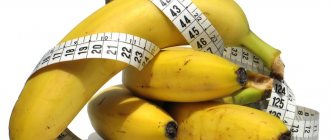Each of us has at least once uttered phrases like “Before my period, I feel so hungry, it’s as if I haven’t eaten for a month,” “I want sweets so much, what should I do? Is this even normal? These questions are almost universal and so widespread that they have become the basis for much research. What is the menstrual cycle, what hormones affect the feeling of hunger and satiety, and where do cravings for sweets come from?
In most animal species, including humans, nutrition and reproductive functions are closely interrelated.
| Sex hormones are directly involved in the regulation of appetite, feelings of satiety and metabolism. |
This is why the amount of food consumed can vary depending on the phase of the cycle, not to mention the huge changes in appetite and physiology in general that occur in the female body during pregnancy and lactation. Regulation of appetite and eating behavior is considered very important for women's health, and in recent years, eating disorders such as anorexia, bulimia, and obesity have been directly linked to ovarian function and hormonal imbalances.
The main regulator of appetite and satiety in the brain is the hypothalamus . As part of the central system for regulating eating behavior, it coordinates hormonal signals received directly from the digestive system, which are influenced by the level of nutrients in the blood, as well as a number of hormones, including sex hormones. Thus, the hypothalamus regulates the distribution of nutrients and coordinates the balance of energy in the body. In turn, the function of the ovaries is directly related to signals received from the nervous system .
Don’t be lazy and look at the attached picture; it very clearly shows the hormonal cycle and the processes at its different stages. This information will help you understand your whims and what is happening to your body every month.
The ovaries produce the female sex hormones progesterone and estrogen. Estrogen, in particular estradiol , stimulates the formation of the endometrium - the lining of the uterus that will nourish the fertilized egg. If fertilization does not occur, the female body gets rid of this tissue naturally, known as menstruation .
Each woman's menstrual cycle is individual, but, as a rule, lasts from 21 to 35 days. The cycle can be divided into four phases: early follicular (days 1-4), late follicular (days 5-11), ovulation (days 12-15) and luteal phase (days 16-28).
However, when it comes to food, we often talk about the periods “before” and “after” menstruation.
A review of about 40 scientific studies shows that during the luteal phase, that is, after ovulation and before menstruation, women's energy intake can increase by 90-500 calories per day . Why is this happening? The body is actively preparing for fertilization and preparing the body to accept the fetus. Although a number of hormones are involved in the normal function of the menstrual cycle, processes associated with the digestive system are mainly influenced by estrogen and progesterone .
One possible reason the hormonal cycle influences feelings of hunger and satiety is changes in glucose balance . There are some inconsistencies in the research results, but in general, scientists agree that estrogen and progesterone affect the levels of hormones in the digestive system that are responsible for feelings of hunger, satiety and fullness. One of the proofs of the importance of the role of sex hormones are tangible changes in the body during menopause, i.e. a period when the level of female hormones decreases significantly, which leads to a decrease in energy needs and often excess weight gain.
Where's my chocolate?
| Although many women claim that they crave sweets during the premenstrual period, scientific research does not confirm the presence of these cravings. |
Often “sweet” goes in combination with “fat” - which is why carbohydrate preferences during this period are called into question. Several studies compare preferences for certain foods among men and women. Perhaps few people will be surprised by this information: women are indeed more likely to want chocolate, and also to satisfy this need in more than 50% of cases.
| As it turns out, cravings for chocolate are often a need for sensory gratification rather than a biological need, meaning pleasure comes from flavors and aromas rather than energy. |
On the other hand, during the premenstrual period, uncontrolled food consumption (binge eating) is often observed, which some scientists associate with a lack of serotonin in the brain, which may partly explain the craving for chocolate.
It is important to note that during the luteal phase of the menstrual cycle (7-10 days before the onset of menstruation), total energy expenditure in women can increase by 2.5%-11%, however, if translated into calories, this will not exceed 100-150 calories in a day. During pregnancy, the need for energy also increases by 10-15%, i.e. in approximately the same proportion, and becomes significantly larger (20-25%) during the feeding period, which in general can reach about 500 kcal. in a day.
It's interesting to note that there is quite a bit of research on the effects of birth control pills on weight and food cravings. Since birth control pills block natural fluctuations in hormones, it would be interesting to see how this translates into weight gain. Scientists and doctors acknowledge that many women claim that birth control pills make them gain weight. However, what studies have been done indicate that the pills should not generally have this effect. However, this may well depend on the type and amount of hormones in the drug.
How to fight the desire for sweets after eating
Anna Belousova
August 29, 2016
After lunch or dinner you almost always crave something sweet. And this has nothing to do with the amount of food eaten. Meanwhile, constant snacking on sweets allows you to exceed your daily calorie intake by one and a half times. Many obese people who claim that their excess weight is the result of endocrine and other diseases are mistaken. About 60% of obese people “put on” their own pounds. Excess weight does not accumulate immediately, but gradually, due to improper or excessive nutrition. And various bakery products, including cakes, play an important role in this. Sweets eaten after a full meal are difficult to digest on their own and complicate the absorption of everything else.
Often, you crave sweets after eating out of habit. Since childhood, our mothers and grandmothers taught us to eat soup and second course, promising in return a prize - candy or cookies. In an effort to feed us healthy food, they hardly imagined that the child would develop the habit of eating sweets for the main food. But you can fight this desire by consciously refusing something sweet after lunch. Some of the afternoon sweet tooth lovers were a little less fortunate. Many diseases, such as hypoglycemia, metabolic and digestive disorders, can cause the need to periodically “sweeten up”. Also, the desire to eat sweets after a meal may arise if there are not enough vivid impressions and emotions. Probably everyone has noticed that during the most active and vibrant periods of life, one’s hands do not even reach for candy. Substances found in sweets contribute to the production of serotonin, which gives us a feeling of happiness and good mood. Sports activities have the same effect, however, they are much healthier. Although sometimes, instead of jogging, you can eat a couple of chocolates or cookies, the calories in which do not exceed two hundred kilocalories. You should not overeat sweets: a large amount of simple carbohydrates entering the blood sharply increases insulin, which entails the storage of fat in the body. In the fight against the habit of eating sweets after lunch, in no case should you completely give up sweets, including sugar. After all, as you know, the forbidden fruit is sweet. Sugar is a carbohydrate and an important source of energy for the body. Therefore, it will not be possible to completely exclude it from the diet without harm to health. It is better to gradually reduce the amount of sweets you eat or replace them with healthier ones. For example, dried fruits, honey, marshmallows and marmalade are an excellent substitute for cakes and sweets. You can make delicious and healthy candies yourself. Cooked with your own hands, they will be even tastier. For such sweets we will need: 200 grams of dates, dried fruits (raisins or dried cranberries), 200 grams of nuts (for example, 100 grams of cashews and 100 grams of almonds), coconut or sesame oil in the amount of three tablespoons and coconut flakes, also about two hundred grams . Before starting cooking, you need to remove the pits from the dates. Then grind dried fruits, dates and nuts in a blender bowl. Combine the crushed ingredients with coconut or sesame oil and mix thoroughly. Roll small balls from the resulting mass and roll them in coconut flakes. Place in the refrigerator for at least three hours. After time, you can enjoy this dessert. Food should not be the meaning of life, and sweets should not end every meal. If you give up your daily intake of sweets, you can not only get a beautiful and slim figure and a healthy gastrointestinal tract, but also increase your performance, improve brain activity and stabilize the functioning of your nervous system. And the money saved on extra sweets can be spent on travel, necessary things and gifts for loved ones.
Anna Belousova
Tags:
- Nutrition
- Sweets
conclusions
In order to get rid of excess weight, you need to spend more energy than you consume. Since the reference point in this case is the basal metabolism, it is useful to remember that this is not a static, but rather a variable value, depending, among other things, on the time of the cycle. That's why:
- You should not sharply limit your calorie intake during the premenstrual period. Rather, on the contrary, you need to take into account the body’s natural need for a little more energy. During this period, women experience an increased feeling of hunger, which makes it difficult to adhere to a limited diet and can lead to “breakdowns” and a depressed state.
It is better to reduce your calorie intake immediately after your period begins and increase it slightly during PMS.
- If you have a sweet tooth, try to satisfy these needs with something healthy, for example, fruits, sweet vegetables or a slice of 70% dark chocolate. So you literally combine business with pleasure. Multiple studies have shown that dark chocolate is a high-quality source of antioxidants and phytonutrients, and also reduces the risk of cardiovascular disease.
It is worth remembering that the increase in basal energy expenditure is not very large, so you should not actively indulge cravings for sweets during the premenstrual period.
- Another symptom of PMS is a feeling of bloating, which is a consequence of water retention and can move the scale to the right. In this case, it is advisable to eat less salty foods during this period of the cycle, because. salt can lead to water retention in the body. Try drinking herbal tea and drinking more (yes, more) clean water. Despite the apparent contradiction, one of the reasons for water retention is dehydration. The body launches processes to retain water in tissues during a lack of water, so 6-8 glasses of clean water a day will help relieve these symptoms.
- During this period, the effectiveness of your training may decrease, regardless of your efforts. However, knowledge about the influence of the menstrual cycle on those factors that determine the effectiveness of training and body condition will help minimize negative consequences.
Author: Elena Degtyar, PhD
Literature:
1. Davidsen, L. et al. (2007). Impact of the Menstrual Cycle on Determinants of Energy Balance: A putative role in weight loss attempts. International Journal of Obesity. 31, 887-890. 2. Tucci, SA (2014) Fluctuations in appetite and food intake during the menstrual cycle Handbook of Diet and Nutrition in the Menstrual Cycle, Periconception and Fertility. 189-207. 3. Hirschberg AL (2012) Sex hormones, appetite and eating behavior in women. Maturitas 71: 248-256.
I want something sweet: reasons, consequences, ways to overcome it.
I constantly want sweets. You are a carbohydrate addict.
With psychological factors everything is much more complicated than with physical factors. But that doesn't mean they're difficult to deal with. Let's figure it out.
Our parents instill in us a taste for sweets in early childhood.
Remember how you were rewarded with candy for a good grade or diligent behavior. Helped mom wash the dishes, get a chocolate bar, cleaned your room, you can eat a cake, fell and broke your knee, don’t cry, eat the candy.
And during the holidays, remember how you waited for the cake to arrive. You tolerated all these guests, listened to conversations that were uninteresting to you, all in order to enjoy a piece of cake at the end of the evening. And voila, now you perceive sweets as a reward, as a way to praise yourself for the work you have done. Here is one of the possible reasons why you constantly want sweets.
Today I worked out well, I can afford some chocolate. Do you recognize yourself? Of course they found out. I sometimes sin with this model of behavior. Well, yes, like you, I was also given candy for excellent grades.
Another example from your life and mine about issuing candy.
You've probably noticed that after lunch or dinner you sometimes, or maybe constantly, want something sweet. This happens to me often, how about you? Now remember yourself as a child, they force you to eat lunch, but you don’t like it, and you don’t want to eat this stewed cabbage. But your mother tells you: “Eat it, you’ll get candy.” Sound familiar? And I know this too. And you reluctantly begin to cram this lunch into yourself for the sake of a reward. And so, the desire to eat sweets after a full meal is always with you.
The desire to eat sweets for lunch may also indicate that you are stressed.
And now the most important thing is long-term stress and sweets.
Let's imagine that you work in some serious organization.
The end of the year has arrived, reports, figures, facts, in short, nothing but turmoil. You are in constant tension, your boss is demanding, nervous, and so on for almost several days in a row. You feel nervous and nervous. And finally, the work day is over and you go home.
But you definitely need to go to the store because you want something sweet. You just imagine that you will now buy a cake, come home and eat it straight with a spoon. And you are already anticipating the bliss you will experience. Well, am I right? Now I’ll tell you what happens to you during stress. Above, I already described a little the body’s reaction to stress. Let's take a closer look at it.
During stress, the hormone cortisol (and several other stress hormones) is released. One of its tasks is to provide us with energy.
With constant stress, cortisol levels are high. It stimulates liver cells to synthesize glucose, which leads to an increase in insulin levels in the blood. Cortisol also stimulates a brutal appetite so that we can restore the energy spent during the “nervousness”.
And what are we doing with you? Yes, we buy sweets, they are affordable, available in any store and we don’t need to waste time preparing them. Here you also get dopamine with every candy you eat.
And now your brain knows, but you still don’t realize: you can eat something sweet to stress and your mood will improve. Therefore, eating sweets during prolonged stress can become a habit.
Another common reason why sugar cravings begin in large quantities is lack of attention, feelings of loneliness or unresolved problems.
You are not as popular among your colleagues as your friend, I’ll go and eat a chocolate bar, my boyfriend dumped me, I don’t get along with others, I feel lonely and abandoned, I’ll buy a cake. Unresolved problems with my husband, children, parents, oh, what a poor wretch I am, I’ll go eat. Sweets lift your spirits!
The circle has closed, you are already captive of your addiction and you constantly want sweets.
And now I will tell you what consequences this habit of eating stress with sweets can lead to.
Ways to reduce sugar cravings
If your craving for sweets goes beyond all reasonable limits, the first thing nutritionists advise you to do is to eat any product high in protein! It allows you to normalize blood sugar levels. A handful of nuts, a piece of boiled chicken, an omelette or a little tofu in just 10-15 minutes will not leave a trace of “sweet” hunger.
If after this your hands still reach for dessert, brush your teeth! This allows you to switch your taste buds.
The famous French nutritionist and active promoter of the chronodiet (a nutritional system based on the body's biorhythms), Patrick Lecomte, believes that you should not completely limit yourself to sweets. After analyzing the time of synthesis of several dozen hormones and enzymes, he came to the conclusion that the optimal time for desserts is from 17:00 to 18:30 (this theory completely destroys our idea of proper nutrition). As a treat, Lecomte recommends a baked apple with honey, a little chocolate, sorbet or a small cake weighing no more than 30 g. By the way, the nutritionist is convinced that sweets can be eaten no earlier than 2 hours after waking up. At the same time, he advises to give up even honey in the morning, since glucose for breakfast can cause fatigue and lack of energy.









